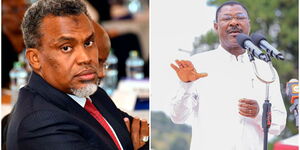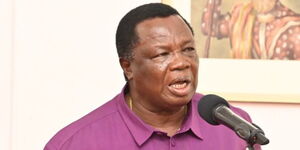The Kenya Primary Schools Head Teachers Association (KEPSHA) have demanded that the Ministry of Education issue more funding for Special Education Schools.
Speaking on Sunday, KEPSHA Western Chair Tobius Omusale, relayed that the schools had been isolated when it came to capitation and resource allocation as compared to other educational institutions.
Omusale also called for a better appreciation for special education teachers, as they normally have to do so much more while educating the special needs students.
"I want to call for the addition of capitation for these students. They have a lot of needs, including books and special gadgets," he said.
"If I had the capability, I would have also increased the salaries of those teachers because they do a lot of hard work."
He, however, acknowledged the ongoing validation of schools, saying that the scrutiny would ensure that the capitation allocated to those schools would be enough, as ghost learners would be eliminated.
The association further called for more enrollment of special education children in schools, despite the lack of resources in the schools.
In a report delivered to the Senate by Kajiado Senator Kanar Seki on July 23, it was exposed that a staggering Ksh183 billion in school funding had been mismanaged.
Among the amounts that reportedly vanished was Ksh67 billion meant for Special Needs Education (SNE) programs in secondary schools.
"These revelations raise fundamental questions about transparency and accountability within the Ministry of Education and related agencies," Senator Seki declared, urging immediate action.
"Disbursing billions to non-existent or non-operational schools, while learners face teacher shortages, infrastructure challenges, congestion, and delayed funding, is a betrayal of the Kenyan people."
Therefore, the Ministry has embarked on a nationwide validation of all schools and enrolled students to collect the data that will guide future capitations.
This exercise has even led to the delay in capitation disbursment for the third term, as over 10,000 schools had yet to validate their data by August.












